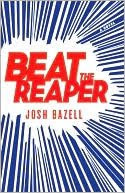 Title
Title:
The Politician: An Insider's Account of John Edwards's Pursuit of the Presidency and the Scandal That Brought Him Down
Author: Andrew Young
Reader: Kevin Foley
Publisher: Tantor Media
Format; Unabridged,MP3 - Unabridged CD edition (February 22, 2010)
ISBN-10: 1400166500
ISBN-13: 978-1400166503
Andrew Young was an aide to John Edwards during his senate run and then through his presidential campaigns. I do not know the standard rules for being someone's political aide, but I can tell you that as Young and the Edwards family worked it, the important boundaries between employer and employee were completely breached. Granted, the relationship between an employer and an assistant, or a celebrity and a handler, or a politician and an aide is not standard or easily defined. Fame complicates things, making both parties likely to idolize the famous person and give him or her much latitude in conduct. Strange ego and personality issues dominated the Young/Edwards relationship. Young ended up buying furniture and taking care of house decorating and maintenance tasks for Edwards and his wife--he then ended up being the go-between between John Edwards and his mistress Rielle Hunter. In the end Young went so far as to actually claim that Hunter (now pregnant with Edwards's child) was HIS mistress and went into seclusion with her--and his family. Clearly, this is insane. Why did Young fall so far? How did he lose sight so completely of himself and his own set of ethics? (I won't even attempt to answer these questions for Edwards. I cannot understand anything he did.)
Young's book suggests the following reasons for his insane devotion to Edwards:
--Successful politicians are consummate people persons who are manipulative and able to "work" people, whether or not they intend to. They may be so charismatic that they simply do not realize their effect on others. Since Young was not a seasoned campaign worker or political person, he was startstruck by the Edwardses to begin with. He also came to love Edwards the man, and Elizabeth Edwards, and considered them close friends. The Edwardses returned that affection, often referring to Young as "family." All lines between friendship/admiration/hero worship/the workplace were blurred.
--Politics attracts the idealistic. Young states repeatedly that he loved Edwards's political messages and thought he should be president despite his personal failings. The bottom line for Young was that it was worth it to support Edwards because in the end, he'd do the right thing for the country. (Greater good for the greatest no. of people.)
--The desire to be near power or associated with power and fame makes people lose sight of themselves.
--Young's sense of his own identity as an adult was fuzzy and incomplete.
Why did Young not walk away early on? He says he ended up feeling trapped in a situation that kept worsening. Edwards kept raising his salary, and he wanted Edwards in office, and he kind of ended up having to hang around until that happened, I guess. I'm not sure. At the end, Young hints about his complex relationship with his own father, who had also committed adultery, and points out how people who are flawed and fail can recover if they are honest.
Young did a lot of awful things. He helped Edwards conceal his affair from his wife, who was suffering from cancer. This is almost too horrible to be believable. Edwards claims Elizabeth was "in remission" at the time his affair with Hunter began. Whatever.
Young also claims that Elizabeth Edwards was difficult, obstructive, unpleasant, and close to crazy by the end. He suggests but does not say outright that she pretended her cancer was worse than it was to gain media attention and support.
Obviously, Young is resentful of the Edwardses, who cut him off after he was used horribly. He does attempt to take responsibility for his own culpability. I am amazed his wife, Cheri, put up with his behavior, because in effect, Young ignored his own family to serve the Edwardses for years on end. He even ended up helping the Edwardses decorate for Christmas and purchase presents--instead of helping his own family. At one point, his mother in law simply turns her back on Young in fury and disgust. This was definitely the kind of thing he deserved!
This book provides an interesting look at Edwards, although since it is clearly tinged with resentment and hurt feelings, it must be taken with a grain of salt. I would like to hear Elizabeth Edwards's take on some of these things; I did find it a bit hard to believe she was as crazy and shrewlike as Young potrays her.
I was disgusted thoroughly with Edwards before I read this book, and after reading it, I still am, though I feel some small sympathy for him. However, I'm mostly really glad he did not make it to a serious position of power. Young, I hope, will not become anyone else's personal assistant or aide. He is not the type of personality to function well in such a role, the book shows. I found Young's refusal to see the truth of his situation very frustrating--but who of us has not had huge blindspots in life, or times of denial. I can only hope my own never lead me to enable (or engage in) behavior like Edwards's.
The audiobook is read by Kevin Foley, who has a nice, booming voice that is pleasant to the ear. I am not fond of the southern accent he adopted for Edwards, and I haven't heard Edwards speak enough to know if it was accurate. In places, Foley gets the emphasis of sentences wrong/misreads a bit--but all in all, the book is good to listen to.







